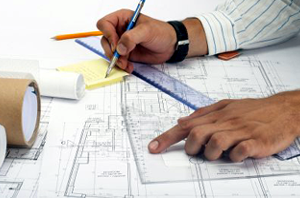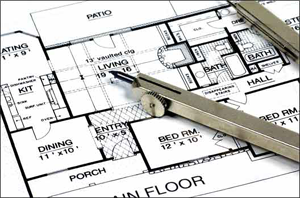Department of Civil Engineering Bannu Campus
The courses of study leading to the Degree of B.Sc. civil engineering have been planned to offer a broad spectrum of civil engineering subjects. The curriculum lays emphasis on subjects of structures, irrigation, geotechnical, transportation engineering,
environmental engineering and hydraulics. These courses include laboratory and design work.
The prescribed syllabi and examination standards compare favorably with the standard of under-graduate work developed in UK, USA and Canada.
In addition to course work, the final year students are required to work on a project under the guidance of senior faculty members. Study tours and extension lectures are also arranged during the session for the benefit of the students.
Second year or third year students during their summer break and final year students after passing the final examination in civil engineering may work with some recognized organizations, registered with PEC or government department or semi-government department to acquire practical
training of 800 hours for award of degree.
Vision of UET Peshawar
"To be among the top-ranking universities of the world through education, research and innovation."
Mission of UET Peshawar
"To produce highly qualified, well-rounded professionals through education who play a leading role in the society by powering and driving knowledge-based economy and offer research services and innovation for sustainable development."
Mission of the Department Civil of Engineering
"To produce civil engineers having the knowledge, skills and professional attitude that will enable them to develop innovative, safe, economical and sustainable solutions for the society."
Program Education Objectives (PEOs)
PEO1: Exhibit flexibility and competency in bringing demanding projects to completion by applying in-depth engineering principles, analytical skills, and modern practices. PEO2: Practice relevant codes for the betterment of civic/communal issues using eco- friendly standard protocols, considering hazard mitigation and human well-being. PEO3: Pursue a strategy of long-term knowledge acquisition by considering modern computational techniques and novel tools. PEO4: Lead and work collaboratively, through sound communication, efficient resource management, and effective public dealing, to achieve quality assurance in diverse field and office environments. Program Learning Outcome (PLOs)The Engineering graduates from UET Peshawar, Bannu Campus will be able to demonstrate the following learning outcomes for their professional career, at the completion of their degrees.
1. Engineering Knowledge
The graduates will be able to apply, knowledge of mathematics, science, engineering fundamentals and an engineering specialization to the solution of complex engineering problems in the field of Engineering.
2. Problem Analysis
They will be able to identify, formulate, research literature, and analyze complex engineering problems reaching substantiated conclusions using first principles of mathematics, natural sciences and engineering sciences relating to Engineering.
3. Design/Development of Solutions
They will be able to design solutions for complex engineering problems and design systems, components or processes that meet specified needs with appropriate consideration for public health and safety, cultural, societal, and environmental considerations with reference to the Construction industry and Engineering.
4. Investigation
They will be able to investigate complex engineering problems in a methodical way including literature survey, design and conduct of experiments, analysis and interpretation of experimental data, and synthesis of information to derive valid conclusions.
5. Modern Tool Usage
They will be able to create, select and apply appropriate techniques, resources, and modern engineering and IT tools, including prediction and modeling, to complex engineering activities, with an understanding of the limitations.
6. The Engineer and Society
They will be able to apply reasoning informed by contextual knowledge to assess societal, health, safety, legal and cultural issues and the consequent responsibilities relevant to professional engineering practice and solution to complex engineering problems in the Engineering fields.
7. Environment & Sustainability
They will be able to understand the impact of professional engineering solutions in societal and environmental contexts and demonstrate knowledge of and need for sustainable development, with special reference to achieving the Sustainable Development Goals.
8. Ethics
They will be able to apply ethical principles and commit to professional ethics and responsibilities and norms of engineering practice, with special reference to the Pakistan Engineering Code of Engineering Practice.
9. Individual and Team Work
At the completion of their degrees, they will be able to work effectively, as an individual or in a team, on multifaceted and /or multidisciplinary settings in the related fields of Engineering.
10. Communication
They will be able to communicate effectively, orally as well as in writing, on complex engineering activities with the engineering community and with society at large, such as being able to comprehend and write effective reports and design documentation, make effective presentations, and give and receive clear instructions.
11. Project Management
They will be able to demonstrate management skills and apply engineering principles to one's own work, as a member and/or leader in a team, to manage projects in a multidisciplinary environment relating to Construction and Engineering.
12. Lifelong Learning
ability to recognize importance of, and pursue lifelong learning in the broader context of innovation and technological developments.
- Academic Programs
- - B.Sc. Civil Engineering
Field Visits
Field visits to Civil Engineering projects of national importance are arranged for students. Each year students and concerned faculty members visit facilities and projects with a high technical merit.
Survey Camp
Each year field course in surveying and leveling is arranged for students of third year Civil Engineering for a period of three weeks for experience. The course includes hands-on work in contouring, triangulation, fly leveling
and plane tabling.
- Laboratories The Department is supported by well-equipped laboratories having state-of-the-art machinery and equipment. It has the following laboratories:
- - Environmental Engineering Laboratory
- - Hydraulics Laboratory
- - Concrete Laboratory
- - Material Testing Laboratory
- - Applied Mechanics Laboratory
- - Soil Mechanics Laboratory
- - Transportation Engineering Laboratory
- - Surveying Laboratory
- - Drawing Hall
- - Computer Laby


